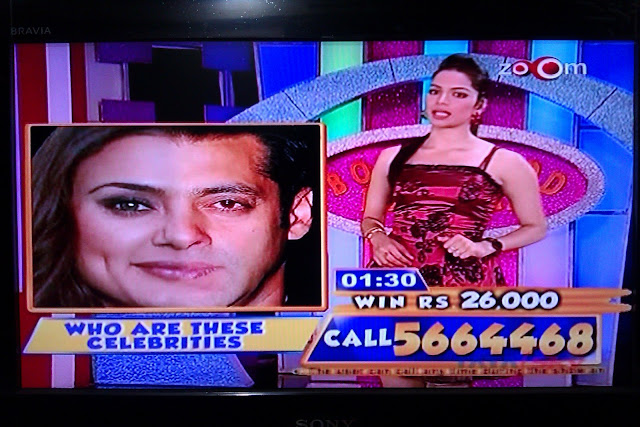Mid-year economic analysis tabled in Parliament on Monday estimated GDP growth at 5.7 to 5.9 percent for the fiscal year 2012-13 as against earlier estimated projection of 7.6 per cent. 5.7 percent GDP growth for fiscal year 2012-12 implies close to 6 percent growth rate in the second half of fiscal year against 5.4 per cent in the first half. The mid-year economic analysis is the second quarterly review.
Moderate inflation is expected to help recover GDP growth in the second half of the current year.
Report forecast stable growth and gradual recovery indicative of already stabilizing and picking up growth.
Report highlighted slower growth rate of economy at 5.4 percent, year on year, in the first half of the current fiscal year that hit all the major sectors of the economy, including agriculture, industry and services. Economy grew at an average rate of 8 percent in the last decade. Agriculture sector slowed down on account of deficient rainfall in the current year resulting in slowdown of some segments of the services sector tied to agriculture and industry.
“There is an upturn in the Business Expectations Index for the October-December quarter, the PMI index has moved up in November, there is buoyancy in capital markets, there are improved internal accruals in the corporate sector, and there is some pick up in manufacturing, as reflected by 8.2 per cent growth in IIP in October 2012 vis-à-vis October 2011,” said report.
The report said the Government is continuously monitoring the fiscal situation and it announced the roadmap for fiscal consolidation that aims at containing the fiscal deficit at 5.3 per cent of GDP in the current year and reducing it to 4.8 per cent in the year 2013-14. It aims to further reduce it by 0.6 percentage points each year in the next three years i.e. from 4.2 per cent in 2014-15 to 3 per cent in 2016-17. In order to contain the rising subsidy burden, Government raised diesel prices and capped subsidised LPG cylinders to consumers and placed great emphasis on expenditure cuts, and realisation of budgeted revenues.
Report attributed negative growth of merchandise exports and imports from the third quarter of 2011-12 to slowdown in the global and the domestic economy. While the former affected the exports, latter resulted in the slowdown of imports. The trade deficit in April-October 2012 was US $ 110 billion as against US $ 106.8 for April-October 2011. The large trade deficit is attributed primarily to slow growth in export markets, the inelastic nature of imports, and rising prices of crude oil and gold. The higher trade deficit led to large current account deficit that stood at 4.2 per cent of GDP in 2011-12 notwithstanding an increase in the surplus on net invisibles account. The current account deficit is expected to be around 3.7 per cent in the current financial year.
Report forecast stable growth and gradual recovery indicative of already stabilizing and picking up growth.
Report highlighted slower growth rate of economy at 5.4 percent, year on year, in the first half of the current fiscal year that hit all the major sectors of the economy, including agriculture, industry and services. Economy grew at an average rate of 8 percent in the last decade. Agriculture sector slowed down on account of deficient rainfall in the current year resulting in slowdown of some segments of the services sector tied to agriculture and industry.
“There is an upturn in the Business Expectations Index for the October-December quarter, the PMI index has moved up in November, there is buoyancy in capital markets, there are improved internal accruals in the corporate sector, and there is some pick up in manufacturing, as reflected by 8.2 per cent growth in IIP in October 2012 vis-à-vis October 2011,” said report.
The report said the Government is continuously monitoring the fiscal situation and it announced the roadmap for fiscal consolidation that aims at containing the fiscal deficit at 5.3 per cent of GDP in the current year and reducing it to 4.8 per cent in the year 2013-14. It aims to further reduce it by 0.6 percentage points each year in the next three years i.e. from 4.2 per cent in 2014-15 to 3 per cent in 2016-17. In order to contain the rising subsidy burden, Government raised diesel prices and capped subsidised LPG cylinders to consumers and placed great emphasis on expenditure cuts, and realisation of budgeted revenues.
Report attributed negative growth of merchandise exports and imports from the third quarter of 2011-12 to slowdown in the global and the domestic economy. While the former affected the exports, latter resulted in the slowdown of imports. The trade deficit in April-October 2012 was US $ 110 billion as against US $ 106.8 for April-October 2011. The large trade deficit is attributed primarily to slow growth in export markets, the inelastic nature of imports, and rising prices of crude oil and gold. The higher trade deficit led to large current account deficit that stood at 4.2 per cent of GDP in 2011-12 notwithstanding an increase in the surplus on net invisibles account. The current account deficit is expected to be around 3.7 per cent in the current financial year.
Report put foreign exchange reserves at US $ 295.3 billion at the end of October 2012, as against US $ 294.4 billion at the end of March 2012. External debt increased by nearly US $ 40 billion between end of March 2010-11 and end of March 2011-12. External debt was US $ 349.5 billion at the end of June 2012.



















.gif)
.gif)
.gif)
.gif)











